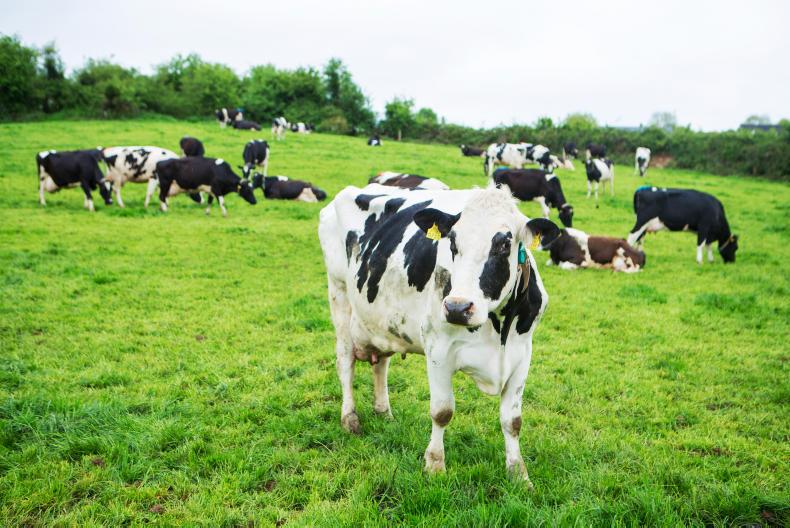A new study has shown that emissions of the greenhouse gas methane are significantly lower in dairy cows on grass-based diets compared with cows on a total mixed ration (TMR).
The research was conducted at the Scotland’s Royal College (SRUC) campus in Dumfries and involved 45 spring-calving Holstein-Friesian cows being split into three treatments.
One group received a TMR full time, one group was zero-grazed indoors and the final group was at grass. All groups were housed by night and received TMR.
Emissions were measured using a handheld laser methane detector following milking, with the experiment running for four weeks.
By the end of the period, researchers found that methane production for the zero-grazing and grazing groups were 17% and 39% lower than the TMR-fed group respectively.
Milk yields across the three groups remained unchanged over the four-week period, at around 37 litres/cow/day.
“The efficiency of milk production per unit of methane was substantially greater for the two grass-fed groups,” the SRUC researchers state.
Climate targets
The Scottish Government last week published its draft climate change bill, which sets a target of a 90% reduction in carbon emissions by 2050.
The fear from farmers is that it will lead to increased pressure on agricultural activities.
NFU Scotland president Andrew McCornick has said: “Scotland’s farmers and crofters are on the frontline in experiencing the impacts of climate change, with shifting weather patterns caused by climate change impacting directly on their ability to produce food.
“The bill set out ambitious new targets which will challenge both individuals and industry.
“Like other industries that will also need to step up, we are determined to play our part as a key industry in rural Scotland to help meet these new targets.”






 This is a subscriber-only article
This is a subscriber-only article










SHARING OPTIONS: